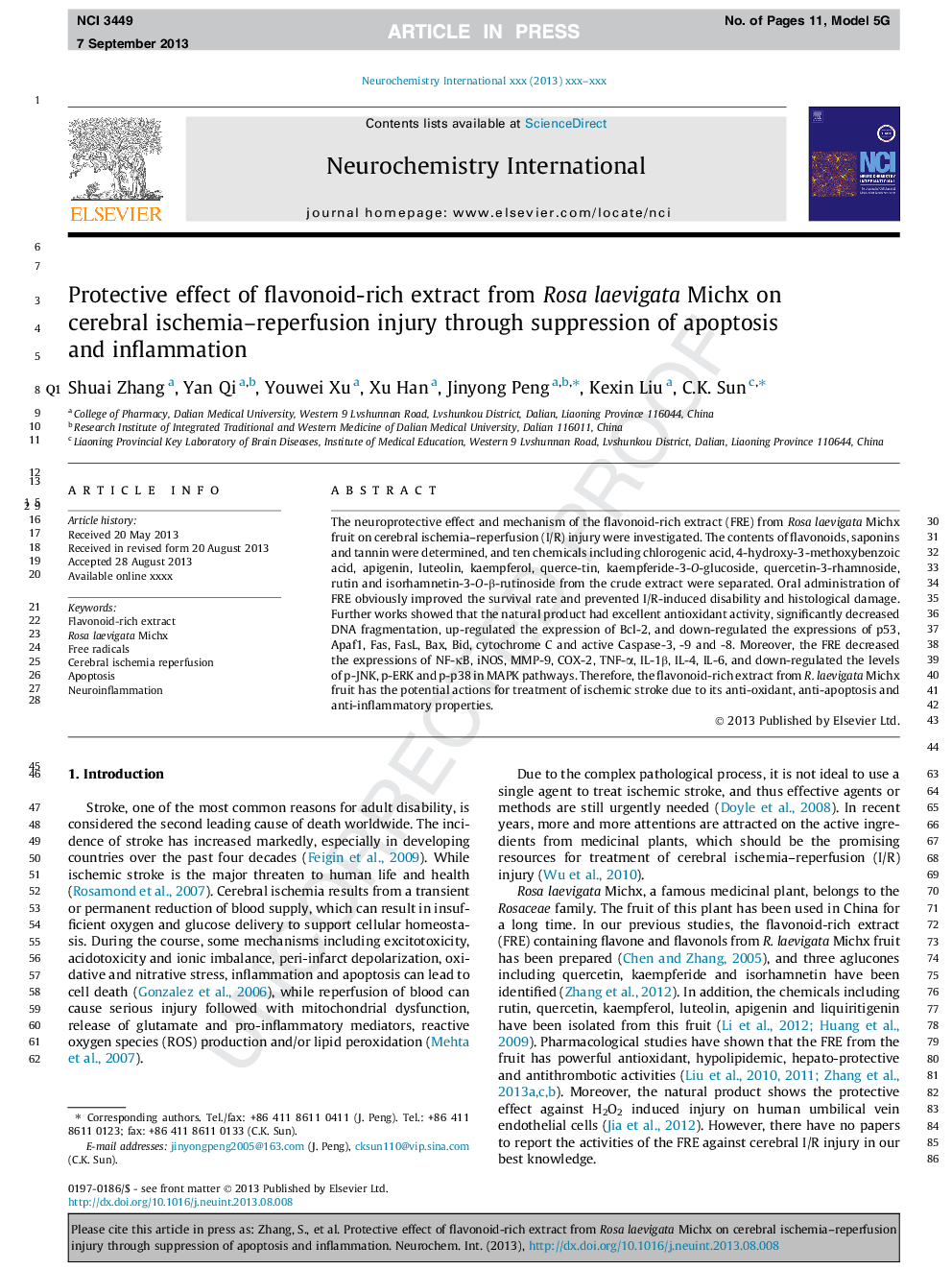| Article ID | Journal | Published Year | Pages | File Type |
|---|---|---|---|---|
| 10958188 | Neurochemistry International | 2013 | 11 Pages |
Abstract
The neuroprotective effect and mechanism of the flavonoid-rich extract (FRE) from Rosa laevigata Michx fruit on cerebral ischemia-reperfusion (I/R) injury were investigated. The contents of flavonoids, saponins and tannin were determined, and ten chemicals including chlorogenic acid, 4-hydroxy-3-methoxybenzoic acid, apigenin, luteolin, kaempferol, querce-tin, kaempferide-3-O-glucoside, quercetin-3-rhamnoside, rutin and isorhamnetin-3-O-β-rutinoside from the crude extract were separated. Oral administration of FRE obviously improved the survival rate and prevented I/R-induced disability and histological damage. Further works showed that the natural product had excellent antioxidant activity, significantly decreased DNA fragmentation, up-regulated the expression of Bcl-2, and down-regulated the expressions of p53, Apaf1, Fas, FasL, Bax, Bid, cytochrome C and active Caspase-3, -9 and -8. Moreover, the FRE decreased the expressions of NF-κB, iNOS, MMP-9, COX-2, TNF-α, IL-1β, IL-4, IL-6, and down-regulated the levels of p-JNK, p-ERK and p-p38 in MAPK pathways. Therefore, the flavonoid-rich extract from R. laevigata Michx fruit has the potential actions for treatment of ischemic stroke due to its anti-oxidant, anti-apoptosis and anti-inflammatory properties.
Related Topics
Life Sciences
Biochemistry, Genetics and Molecular Biology
Cell Biology
Authors
Shuai Zhang, Yan Qi, Youwei Xu, Xu Han, Jinyong Peng, Kexin Liu, C.K. Sun,
